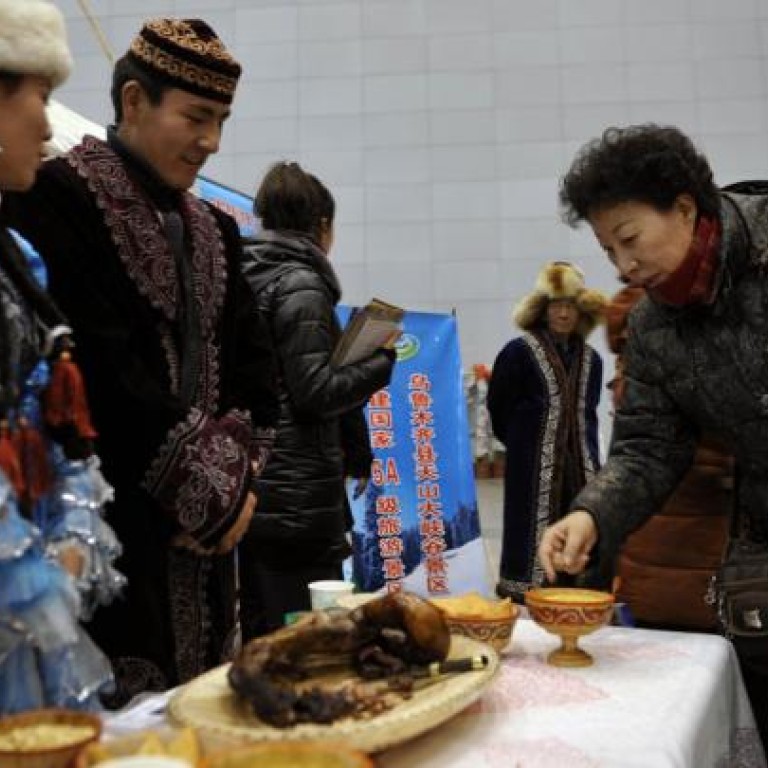
What the mainland media say, December 9, 2012
Outrage at police action linked to simmering tension between Uygurs and Han Chinese
Fine food often does not come cheap. Take a delicacy such as Xinjiang , a dense, cake-like confection that Uygurs make almost entirely of walnuts and other nuts. A single slab of the stuff can cost as much as 6,000 yuan (HK$7,450).
Yet many were astonished when police in Yueyang, Hunan province, ordered a Han villager to pay a whopping 160,000 yuan to replace he destroyed during a brawl with food vendors from Xinjiang.
The extraordinary compensation triggered an uproar over the way police handled the case, with some questioning whether authorities had sacrificed the rule of law to avoid inflaming ethnic tension.
Citing a post on the Yueyang police's official Sina Weibo, the online edition of the reported that the villager was ordered to pay the vendors 200,000 yuan in total, including 40,000 yuan to cover several motorcycles and injuries to two workers. The rest? . The police did not say just how much was destroyed.
Not surprisingly, the huge payout drew a torrent of reaction in the media and widespread mockery on microblogs, where commenters marvelled at the jaw-dropping value now assigned to a cake full of nuts.
"This is an era in which someone driving a Porsche will flee after hitting a flatbed cart loaded with Xinjiang ," wrote one. "From now on, Xinjiang is the choice if someone wants to bribe an official," wrote another.
By the end of last week, "Xinjiang " had become one of the most frequently used terms in mainland blogs.
By Wednesday, Yueyang police had started to back-pedal. In a second microblog posting, the police apologised for "misinformation" released earlier in the week. It said the amount was only 96,600 yuan to cover the loss of 2,760kg of and travel expenses to send 16 of the vendors back to Xinjiang.
Not long after, both police blog postings were deleted.
Turgunjun Tursun, a research fellow with the Xinjiang Academy of Social Sciences, wondered how much outrage over the incident had to do with simmering ethnic tension between the Xinjiang-based Uygur minority and the country's Han Chinese majority.
In a commentary for the , he wrote that fear of stirring up ethnic issues had often driven police to try any means necessary to dispel tension.
"For fear of wrecking their career, they often end up making concessions in such cases, but at the expense of the rule of law," he said. "It has worked before but it no longer works in the age of the internet, which allows the public to more closely scrutinise the government for potential injustices."
He said local governments must learn to better address ethnic issues within the framework of the rule of law as people from different ethnic backgrounds came in increasing contact with each other.
"The itinerant vendors don't deserve this if they go about their business in accordance with the law and fairness," it said. "Without due process, the repatriation of the vendors is instead a violation of the law."
But that wasn't the end of the debate, which turned from compensation and rule of law to food safety.
Some said the large sum assigned to the food begged a crackdown on substandard production and exorbitant prices. The noted a report in February that found a slab of with 300 times the amount of allowed.
Vendors charged up to 6,000 yuan for a slab, even though each cost about 100 yuan to make, the paper said.
